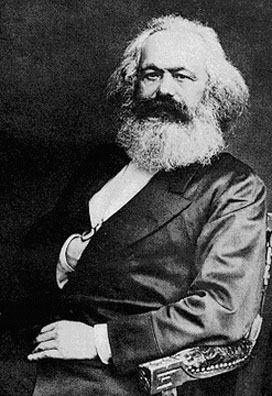


BY Theodore Shoebat
“There are no moral absolutes,” the foolish told the wise.
“Are you absolutely sure?” replied the wise.
Marriage being only “between a man and a woman” is an absolute. It can never be between a man and a horse or a tree, or between the sun and the moon, a mare and a stallion, chicken and rooster or rooster with rooster.
But the attack on Proposition 8 has nothing to do with the left’s love for homosexuals and everything to do with eroding the absolutes set in our Constitution. Altering the U.S Constitution is the only way for socialism to prevail in the U.S. Socialists like Elena Kagan plays with the First amendment, attacking that moral absolute and said to redefine it as depending “upon a categorical balancing of the value of the speech against its societal costs.”
These “societal costs”, spell socialism and nothing more. History tells us that by altering “absolutes” the Left replaced individualism (which works) with collectivism (which doesn’t).
Perhaps a little history can help us understand the likes of Kagan and Judge Vaughn Walker overturning Prop 8. Collectivism stems from positivism–founded by French philosopher Auguste Comte (19th century).
Positivism says that human experience is the supreme criterion of human knowledge, denies the existence of a personal God and takes humanity, “the great being”, as the object of its veneration in order to elevate man over God. Comte’s positivism was derived from Henri de Saint-Simon, a utopian ideologue who was the influence to none other then Karl Marx’s socialism.
In his Essay on the Science of Man (1813) Saint-Simon explained that every field of knowledge moved successively from a conjectural to a “positive” stage, and that the sciences reached this stage in a definite order, Physiology had now moved into a positive stage, just as astrology, and alchemy had previously given way to astronomy and chemistry. Now the science of man must move towards the positive stage and completely reorganize all human institutions. (1)
Aguste Comte perpetuated the search for a science of society through a three-stage theory of progress, which he derived from Saint-Simon in 1822. Thus the idea that truth is not absolute but historical became popularized during the nineteenth-century and is realized not in “individual thought” but in “social action” collectively.
It was Saint-Simon’s followers in the 1830s that first gave widespread use not only to the word “socialism,” but also—”socialize,” “socialization,” and socializing the interments of labor. (2) Comte’s influence by Saint-Simon explains why he rejected divine human rights: “Social positivism only accepts duties, for all and towards all…Any human right is therefore as absurd and immoral. Since there are no divine rights anymore, this concept must therefore disappear completely…” (3)
Later, positivism would now submerge itself with the coming of Darwinian evolution. And since mankind evolves, morality must also evolve with it, and instead of all men are created equal we have Charles’s Darwin’s doctrine: “Any animal whatever, endowed with well-marked social instincts, would inevitably acquire a moral sense or conscience, as soon as its intellectual powers had become as well developed…as in man.”
It was evolutionist Herbert Spencer who first coined the phrase “Survival of the fittest” that intended to link darwinism and positivism together. Spencer believed that because human nature can improve and change, then, scientific‚ including moral and political views must change with it, that ethics “have to be considered as parts of the phenomena of life at large. We have to deal with man as a product of evolution, with society as a product of evolution, and with moral phenomena as products of evolution.” (4)
Thus, Spencer believed in the redefining of nations’ constitutions: “All evil results from the non-adaptation of constitution to conditions. This is true of everything that lives.”(5)
The final point in evolution according to Spencer was to see a progression to “perfect man in the perfect society.” Positivism quickly sprung on its way to America, a land whose constitution is disdained and in need of an altercation. Under positivism, judges were to guide both the evolution of law and the Constitution. By these, the views of the Founding Fathers are hampering the progressing evolution of society.
But if darwinian evolution is a science as claimed, why does it always have to leap onto ethics and morality?
CLICK HERE TO READ THE REST AT LUKE HISTORIANS













